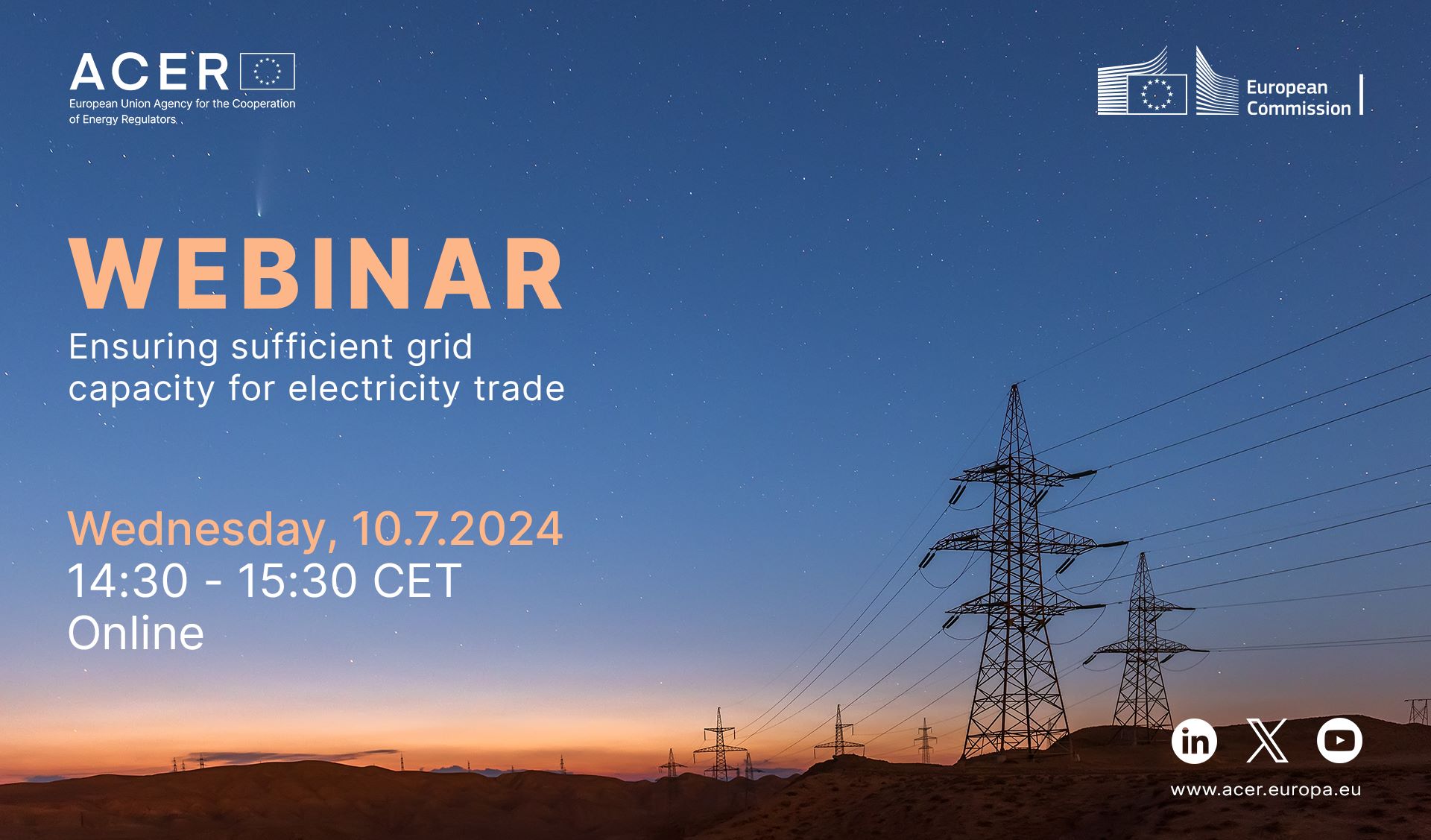4 Regional design of LTTRs - Approved
4 Regional design of LTTRs - Approved
Latest approved methodologies for regional design of long-term transmission rights
7 Hedging tools
7 Hedging tools
Documentation on the decisions on cross-zonal hedging opportunities
11 SpLTCZC
11 SpLTCZC
Documentation on the approval processes of this methodology for each capacity calculation region
11 SpLTCZC - Approved
11 SpLTCZC - Approved
Latest approved methodologies for splitting long-term cross-zonal capacity of the respective capacity calculation region
11 Scheduled exchanges
11 Scheduled exchanges
Documentation on the approval process of these methodologies
11 Scheduled exchanges - Approved
11 Scheduled exchanges - Approved
Latest approved scheduled exchange methodologies
16 CCM - Approved
16 CCM - Approved
Latest approved capacity calculation methodologies of the respective capacity calculation region
ACER-JRC webinar: ensuring sufficient grid capacity for electricity trade
ACER-JRC webinar: ensuring sufficient grid capacity for electricity trade
Online
10/07/2024 14:30
-
15:30
(Europe/Brussels)

